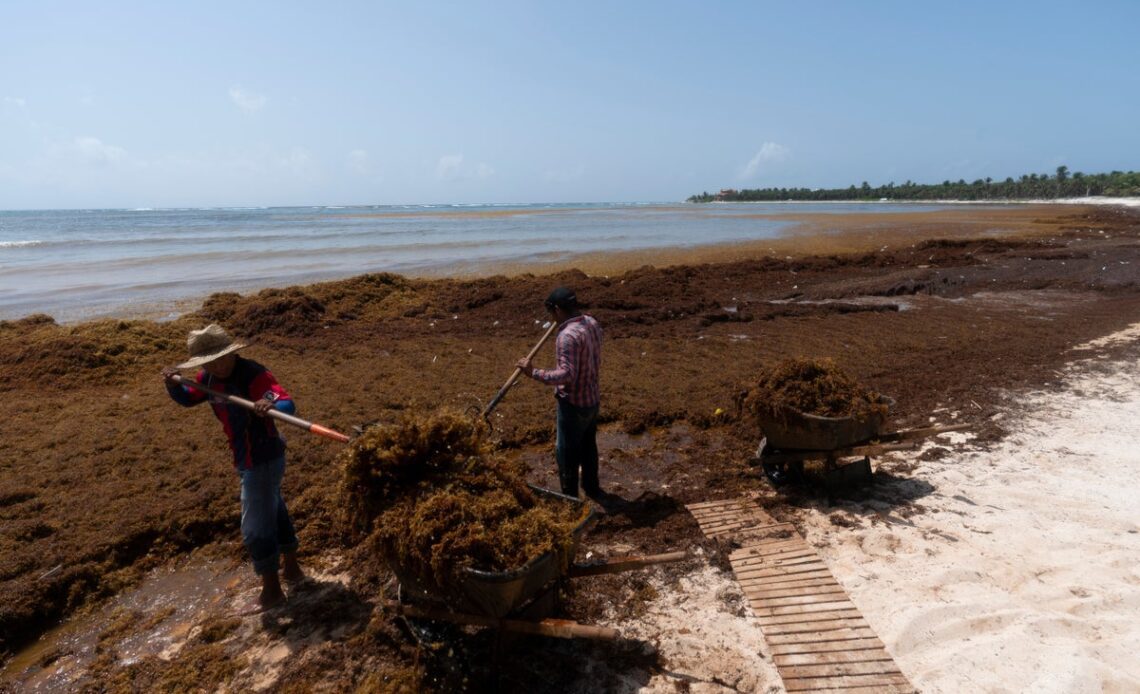Some of Mexico’s most popular beaches for tourists are being overwhelmed by mountains of seaweed.
Endless mounds of sargassum seaweed are washing up on normally idyllic resorts along the country’s Caribbean coast, including in Playa del Carmen, Tulum and Xcalak.
The unusually large quantities of algae give off an unpleasant odour of rotting eggs as they decompose, blighting holidaymakers’ experience of their dream beach trips.
Sarah Callaway, a tourist from Denver, Colorado, told USA Today that she and her children had stuck to the pool at their rented seafront property and avoided the beach – originally the main attraction for them choosing to holiday in coastal Mexico.
Birds walk on sargassum seaweed floating on the Caribbean Sea in Tulum
(AP)
“The property is beautiful, but we were automatically struck… by the smell,” she said.
“The smell is really pungent and very strong. And then, yeah, we were disappointed with how much seaweed there is here.”
She added that her children had tried to get in the sea, but that “they get kind of overwhelmed” by the sargassum. “So we really haven’t gotten to do the beach part of it, which is why we came.”
The situation is even more dire for labourers who have been hired to clear the unattractive weeds off the beaches during six-to-eight-hour shifts.
In Tulum, locals are paid to load up wheelbarrows of sargassum, wheel it to a neighbouring street and dump it there.
Studies have shown that the algae releases hydrogen sulfide gas as it rots, which could be harmful for humans to breathe in over a prolonged period.
Rosa Rodríguez Martínez, a biologist who studies reefs and coastal ecosystems for Mexico’s National Autonomous University, said that at one spot in a decomposed pile of sargassum, the concentration of gas was found to reach 56 parts per million.
“That’s very high,” she said. “Above two, that can be dangerous for people with respiratory problems.”
Ezequiel Martínez Lara, one of the people charged with clearing the seaweed off the beach in Tulum, said: “When sargassum rots, it gives off a very strong odour, like acid, and it is very bothersome when you breathe it. It hurts a lot.”
Click Here to Read the Full Original Article at The Independent Travel…
